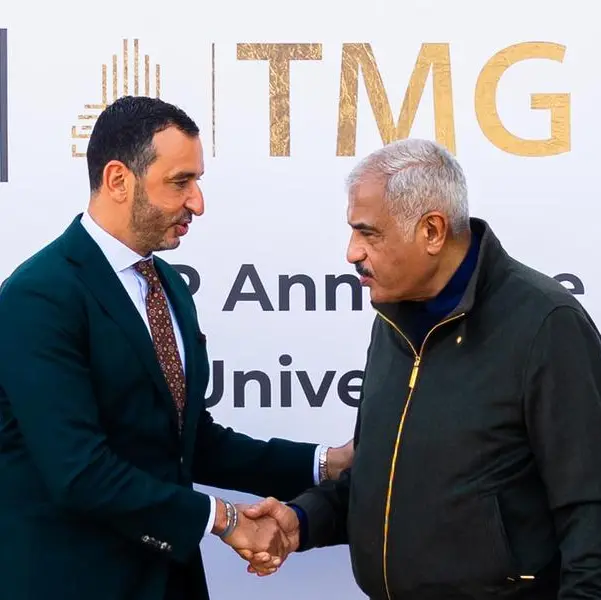PHOTO
Dubai, UAE: As part of its strategic goal to be a global leader in applied education, the Higher Colleges of Technology (HCT) has recently concluded a system-wide E-Learning pilot program to test HCT’s digital infrastructure as a precursor for the complete online delivery of its curriculum.
The pilot program, held on March 4 and 5, 2020, saw HCT students at 16 campuses undertake their courses remotely in a collaboration between HCT and its partners from Etisalat, Zoom and Blackboard.
During the pilot – which recorded responses from 1,330 faculty members and 3,260 students – HCT students studied from home with their courses delivered by HCT faculty at the regularly scheduled times. All HCT campuses across the UAE participated in the pilot, which was a fully integrated experience with full delivery of the curriculum. It tested institutional readiness in the areas of technology, administration, support, content and faculty delivery capability.
A survey of all participants was conducted online during the pilot program to measure its success and to uncover any challenges prior to the mandated two weeks of distance (remote) learning scheduled to take place from March 22, 2020.
The survey results showed a satisfaction rate of over 90% for both students and faculty, with 75% of the faculty highly satisfied with the pilot. Students and faculty were also asked about the level of online “in-class” student participation and both overwhelming agreed that in-class participation was significantly higher with online delivery versus face-to-face delivery. The survey results will be used to guide the continuous improvement of programs and the student learning experience.
With more than 20,000 students attending modern, technology oriented male and female campuses throughout the UAE, HCT has a strong reputation for incorporating innovative teaching and learning methods in the delivery of its curriculum. It is at the cutting-edge of the UAE's drive to modernise and diversify the economy towards one that is primarily knowledge-based.
As the COVID-19 situation continues to challenge schools and universities in the country, resulting in them being temporarily shuttered, the success of this mode of learning offers a huge boost to the continued education of students.
Dr. Abdullatif M. Al Shamsi, HCT President and CEO, has continuously stressed the future importance of EdTech and E-Learning, and the role they will play in preparing the next generation of UAE students for the workforce.
“This is not a luxury for academic institutions, it’s a must,” he stated.
In addition to distance learning of the full curriculum, an UBER-like education system will also be offered to students to keep them engaged and provide them with meaningful and positive activities during their off-campus learning experience. These services will include Online Competitions, E-Sports and Health Activities, Life Skills, E-Reading Space, and E-Volunteering.
HCT E-Learning Pilot Program Connectivity Volume
Day 1 (March 4)
- Over 80,000 unique connections were recorded throughout the day
- The peak connection period was from 12-2pm where almost 24,000 connections were recorded
- Only 125 user incidents were registered over 11 hours with all resolved
Day 2 (March 5)
- Over 27,000 unique connections were recorded throughout the day
- The peak connection period was from 10am-12pm, where over 11,600 connections were recorded
- Only 24 user incidents were registered over 6 hours, with all resolved
---Ends-
About Higher Colleges of Technology
Higher Colleges of Technology (HCT) is the largest higher education institution in the United Arab Emirates and is distinguished by applied education and being the first higher education institution in the country adopted as a creative economic free zone to enable it to graduate companies and entrepreneurs according to the guidance of the leadership of the state.
HCT was established in 1988 and has 16 branches across the country (Abu Dhabi, Al Ain, Al Dhafra Region, Dubai, Sharjah, Ras Al Khaimah and Fujairah). The colleges are proud of their leadership in the field of applied education and for exceeded thirty years of excellence. Since 1991 HCT has granted more than 72,000 educational qualifications to graduates.
HCT’s colleges today include more than 23,000 thousand students, in which female students represent 63% of the total number enrolled, illustrating HCT’s role in preparing UAE girls to contribute to national development.
Visit: www.hct.ac.ae
Instagram: hct_uae
MEDIA CONTACT
For further information, interview requests or images please contact:
Aysha Almeheeri
Director – Communications
Office of Director Communications
aalmeheeri@hct.ac.ae
+971 2 206 1661
Disclaimer: The contents of this press release was provided from an external third party provider. This website is not responsible for, and does not control, such external content. This content is provided on an “as is” and “as available” basis and has not been edited in any way. Neither this website nor our affiliates guarantee the accuracy of or endorse the views or opinions expressed in this press release.
The press release is provided for informational purposes only. The content does not provide tax, legal or investment advice or opinion regarding the suitability, value or profitability of any particular security, portfolio or investment strategy. Neither this website nor our affiliates shall be liable for any errors or inaccuracies in the content, or for any actions taken by you in reliance thereon. You expressly agree that your use of the information within this article is at your sole risk.
To the fullest extent permitted by applicable law, this website, its parent company, its subsidiaries, its affiliates and the respective shareholders, directors, officers, employees, agents, advertisers, content providers and licensors will not be liable (jointly or severally) to you for any direct, indirect, consequential, special, incidental, punitive or exemplary damages, including without limitation, lost profits, lost savings and lost revenues, whether in negligence, tort, contract or any other theory of liability, even if the parties have been advised of the possibility or could have foreseen any such damages.




















